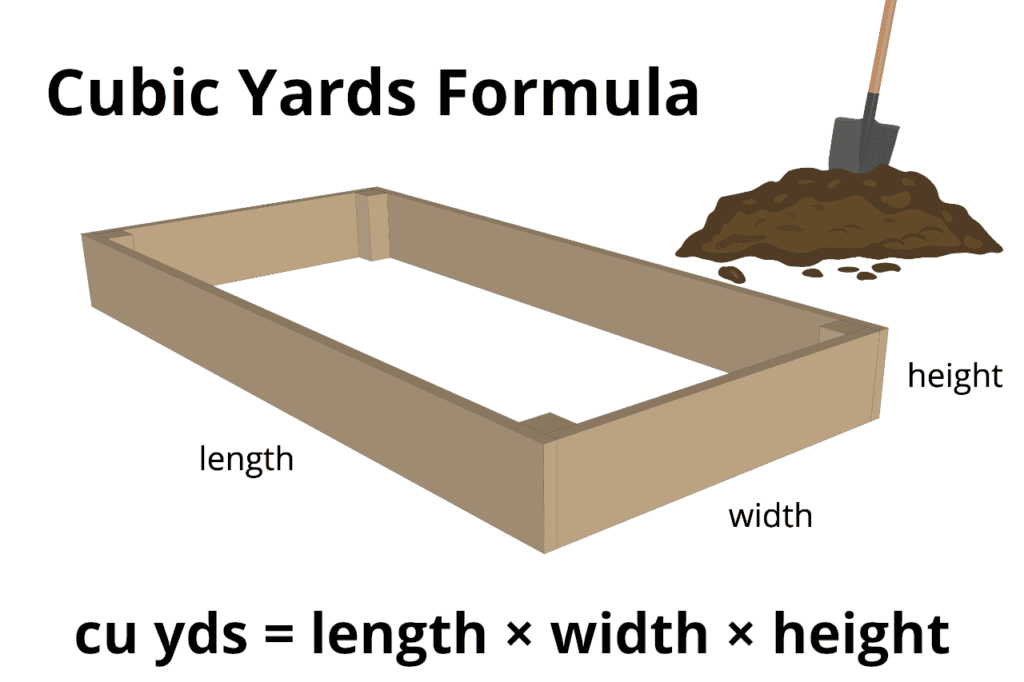Estimating Fill Dirt – Your Guide for Denver Projects
Estimating Fill Dirt for a landscaping project in Denver? This comprehensive guide simplifies the process, helping you calculate the right amount of fill dirt for your project. Whether you’re leveling a yard, creating a garden bed, or filling a pool in the Denver metro area, we’ll show you how to avoid costly miscalculations and ensure your project runs smoothly.
What Is Fill Dirt and Why Use It?
Table of Contents
Fill dirt, primarily subsoil with clay and small rocks, contains minimal organic material, making it perfect for stable, compactible foundations. In Denver’s varied terrain, it’s ideal for leveling uneven ground, supporting structures, or enhancing drainage in sloped areas. Use fill dirt to shape landscapes, elevate garden beds, or redirect water flow, reducing erosion and creating a solid base for your outdoor projects.
The Importance of Precise Fill Dirt Estimates
Getting your fill dirt calculations right is crucial for staying on budget. Over-ordering wastes money and materials, while under-ordering can delay your project and increase delivery costs. Accurate estimates ensure structural stability, prevent settling, and reduce environmental impact by minimizing excess hauling—key for Denver’s sustainability-focused community.

Key Considerations for Fill Dirt Calculations
To estimate fill dirt needs for your Denver project:
- Determine Volume: Measure the length, width, and depth of the area.
- Adjust for Terrain: Account for Denver’s slopes, rocky soils, or irregular shapes.
- Project-Specific Depths: Different tasks, like foundations or landscaping, require varying fill depths.
- Soil Compaction: Consider how the existing soil compacts and plan for settling.
- Extra Allowance: Add a buffer to account for settling, especially in Denver’s dry climate.
Measuring Your Project Area Accurately
To measure your Denver site:
- Outline the area requiring fill dirt.
- Use a tape measure or measuring wheel to record length and width.
- Measure depth at multiple points and calculate the average, factoring in uneven terrain.
- Divide irregular areas into smaller, measurable sections.
- Note all measurements for precise calculations.
How to Calculate Fill Dirt Volume
To determine the amount of fill dirt needed:
- Multiply length x width x depth (in feet) to calculate cubic feet.
- Convert cubic feet to cubic yards by dividing by 27.
- Round up to the nearest whole number to avoid shortages.
- For compacted projects, add 10% to account for settling in Denver’s arid conditions.
- Verify calculations manually or use an online tool for accuracy.
Simplify with an Online Fill Dirt Calculator
An online calculator streamlines the process:
- Record your project area’s dimensions.
- Enter measurements into the calculator, selecting feet or inches.
- Click calculate to get results in cubic yards.
- Save time and reduce errors with this efficient tool.
Pitfalls to Avoid When Estimating Fill Dirt
Steer clear of these common mistakes:
- Inaccurate Depth Measurements: Always measure depth at multiple points.
- Ignoring Settling: Include extra dirt for compaction.
- Assuming Uniform Quality: Check that the fill dirt is clean and debris-free.
- Estimating by Eye: Avoid guessing volume, as it’s easy to miscalculate.
- Delayed Ordering: Plan ahead to secure materials on time.
Choosing a Reliable Fill Dirt Supplier in Denver
Select a trustworthy supplier with these tips:
- Research Reviews: Look for feedback from Denver customers.
- Confirm Quality: Ensure the dirt is free of contaminants.
- Compare Pricing: Evaluate costs and delivery fees from multiple suppliers.
- Seek Deals: Inquire about bulk discounts or expedited delivery.
- Prioritize Expertise: Partner with a supplier like Mackland LLC for reliable guidance.
Budgeting for Fill Dirt in Denver
Fill dirt in Denver typically costs $5–$15 per cubic yard. Delivery fees vary by distance and load size, so ask about free delivery options. If hiring labor to spread the dirt, include those costs in your budget. Request a detailed quote from suppliers like Mackland LLC to avoid surprises.
Final Thoughts: Nailing Your Denver Fill Dirt Project
Estimating Fill Dirt correctly set your Denver project up for success. Accurate measurements prevent budget issues and material shortages, while a calculator simplifies planning. Partnering with a dependable supplier like Mackland LLC ensures high-quality materials. With careful preparation, your landscaping project will flourish in Denver’s unique environment.
Fast, Reliable Material Delivery in Denver
Need common fill dirt, screened topsoil, unscreened dirt, or gravel delivered to your Denver site? Mackland LLC provides quick, dependable delivery across the Denver metro area.
Connect with Mackland LLC
Mackland LLC delivers top-quality residential and commercial construction services in Denver, on time and within budget. For free estimates, call 303 501 0828 or visit https://macklandllc.com/contact.
Recent Articles
Fill Dirt vs Planting Soil
Fill Dirt vs Planting Soil: Choosing the Right Material for Your Colorado Landscaping Project When i…
How to Use Fill Dirt: A Complete Guide for Landscaping and Construction in Denver
How to Use Fill Dirt Fill dirt is an essential material for anyone tackling landscaping and construc…
Terraced Backyard Design: The Best Way to Transform a Sloped Yard
Transforming a Sloped Yard with Terraced Backyard Design A sloped backyard can feel like a landscapi…